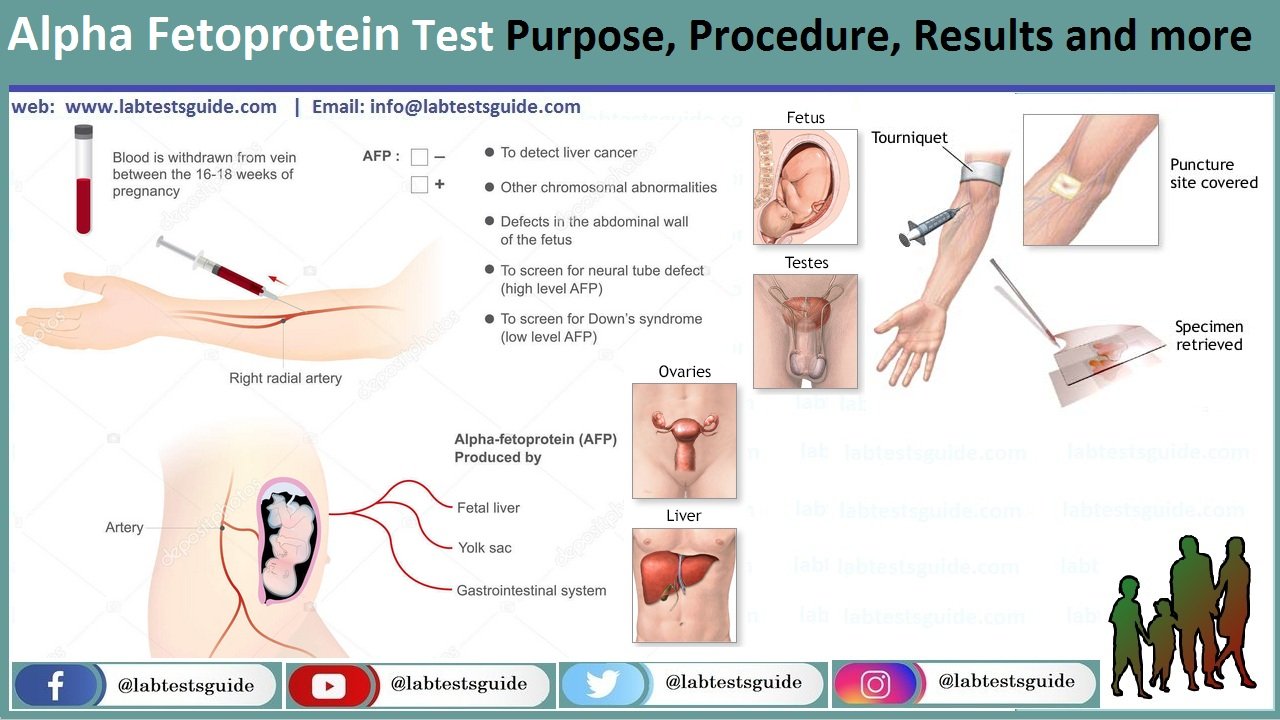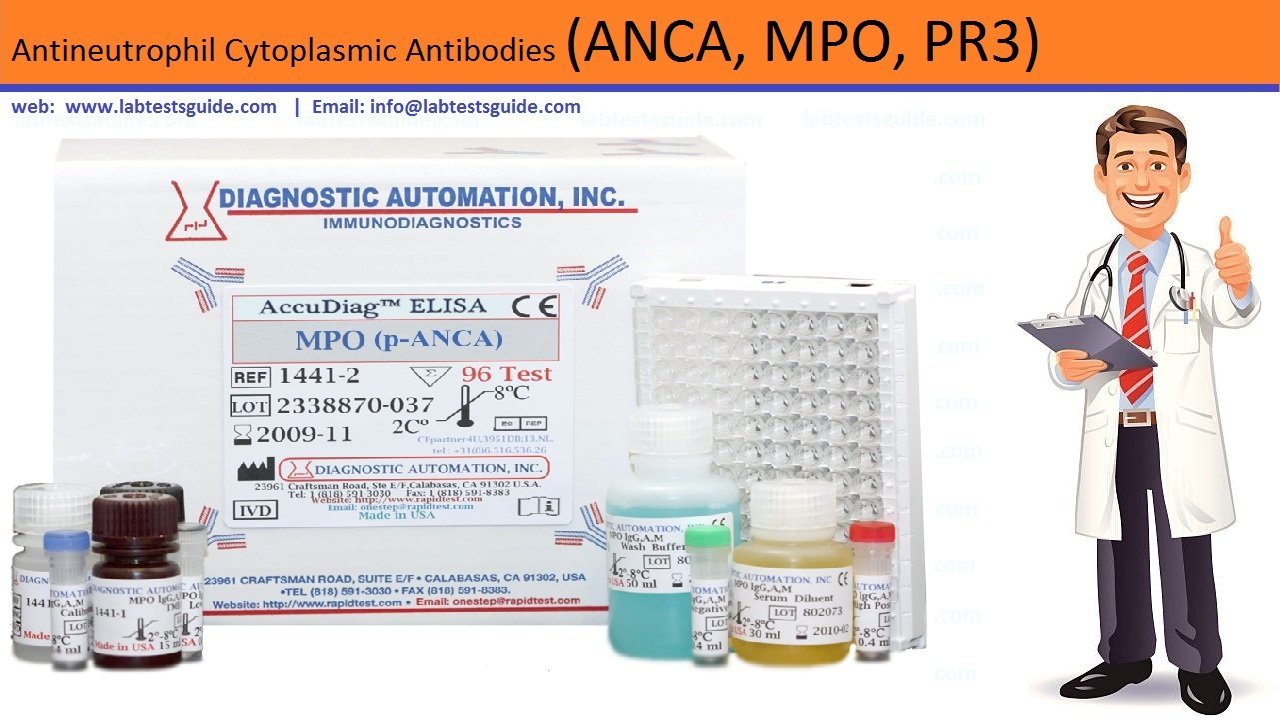Alpha-fetoprotein (Total) Test
November 16, 2020 | by fttower.com
Alpha-fetoprotein (AFP) is a protein produced in the liver of a developing fetus. During the development of a baby, some AFP passes through the placenta and reaches the mother’s blood. An AFP test measures the level of AFP in pregnant women during the second trimester of pregnancy.

Also Known As: AFP, Total AFP, AFP-L3%, Alpha-fetoprotein (Total), Alpha-fetoprotein-L3 Percent, α1- Fetoprotein
This blood test is used to determine the levels of alpha-fetoprotein (also known as AFP or a-fetoprotein). AFP levels are often elevated above the values found in healthy individuals in cases of various malignant diseases, such as liver damage.
There is no correlation between AFP concentration and tumor size, tumor growth, stage, or degree of malignancy that has been demonstrated so far. Very high AFP values generally indicate serious liver problems. As AFP values increase during liver regeneration, moderately elevated values are found in alcohol-mediated cirrhosis of the liver and acute viral hepatitis, as well as in hepatitis B carriers.
Why to Get Tested:
- AFP test can help to diagnose and monitor certain liver conditions, such as
- It can also help detect several other cancers, including cancers of the:
When to get Tested:
all pregnant women should be offered an AFP test sometime between the 15th and 20th week of pregnancy. The test may be especially recommended if you:
- Have a family history of birth defects
- Are 35 years or older
- Have diabetes
Sample Required
- Pregnant mother serum is needed. It is stable for 24 hours at 2 to 8 °C.
- Take 3 to 5 ml of blood in the disposable syringe.
- Keep the syringe for 15 to 30 minutes and then centrifuge for 2 to 4 minutes. In this way can get a clear serum.
Precaution for sample
- Keep serum at 2 to 8 °C if the test is performed within 24 hours, otherwise, freeze it at -20 °C.
Normal Values
Source 1
| Maternal serum level AFP | |
| 14 weeks of gestation | 25.6 ng/mL (median) |
| 16 weeks of gestation | 34.8 ng/mL (median) |
| 18 weeks of gestation | 47.3 ng/mL (median) |
| 20 weeks of gestation | 64.3 ng/mL (median) |
| 21 weeks of gestation | 74.9 ng/mL (median) |
| Fetal serum level AFP | |
| First-trimester peak | 200 to 400 mg/dL |
| later on, fall 1% of the peak | |
| Cord blood | <5 mg/dL |
| Adult AFP | |
| 97% of the healthy population | <8.5 ng/dL |
| 100% of the healthy population | <15.0 ng/dL |
Source 2
- Adult = <40 ng/mL (<40 mcg/L)
- Child (<1 year) = <30 ng/mL
Increased AFP Level Seen In:
- Maternal serum level >2 times the median level will be seen in:
- Multiple gestations.
- Fetal death.
- Malformations e.g. anencephaly.
- Increased AFP concentration in maternal serum and amniotic fluid is seen in:
- open neural tube defects like anencephaly, spina bifida, omphalocele, esophageal or duodenal atresia.
- Threatened abortion.
- Fetal distress.
- Intrauterine death of the fetus.
- Fetal congenital abnormalities.
- Abdominal wall defects like gastroschisis.
Other Conditions Are:
- Renal abnormalities
- Cystic hygroma.
- Hydrops fetalis.
- Turner syndrome.
- Bowel obstruction.
- Twins.
- Feto-maternal hemorrhage.
- Sacrococcygeal Teratoma.
Decreased Maternal Serum AFP Is Seen In:
Low Level Of AFP With An Abnormal Value Of HCG And Estriol (Triple Screening) Is Indicative Of :
- Trisomy 21 (Down’s syndrome).
- Trisomy 18 (Edwards syndrome)
- Or other chromosomal abnormalities.
Related Articles:
RELATED POSTS
View all

